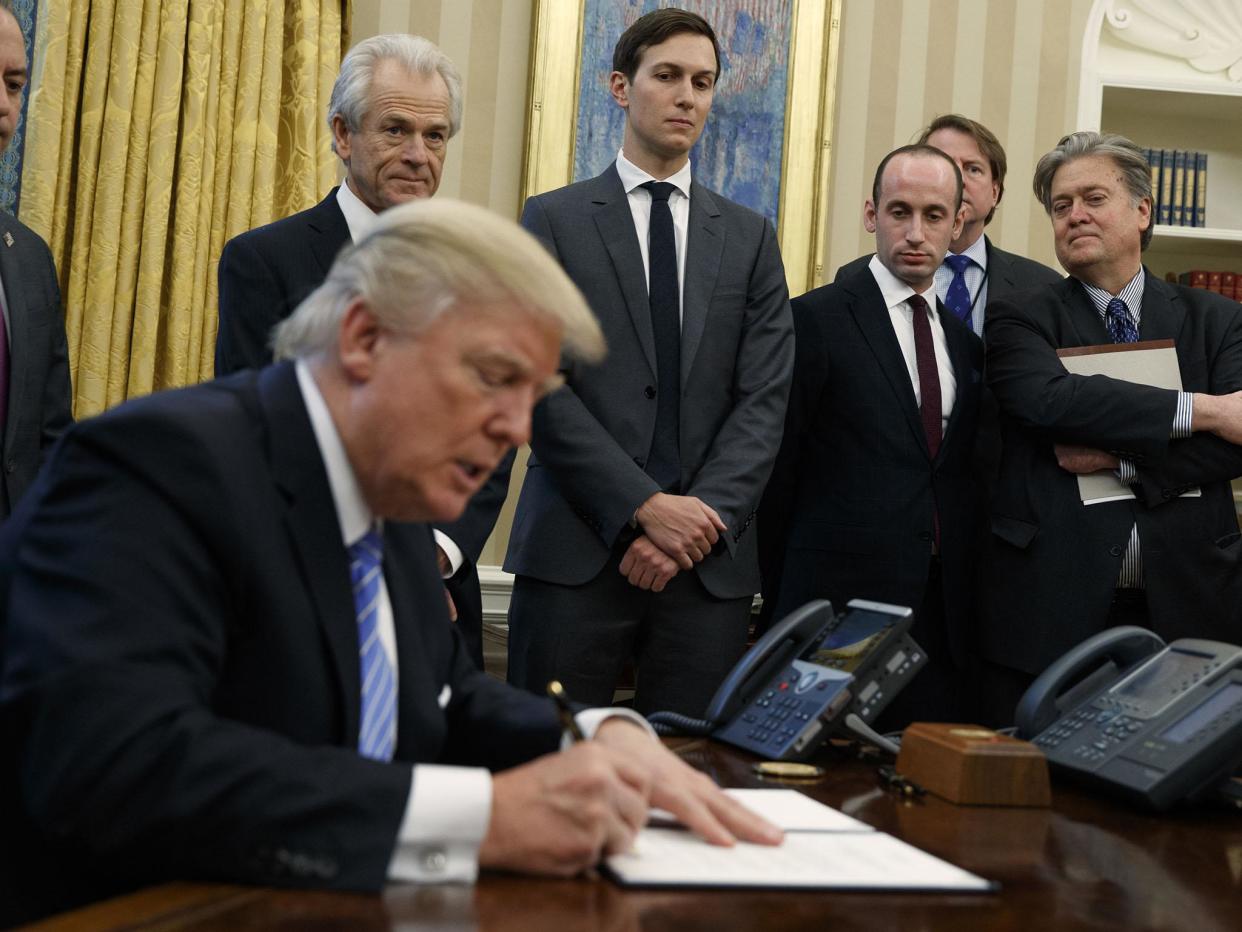Mexico City Policy: What is the abortion funding ban that Donald Trump just reinstated?

Donald Trump is reinstating a ban on providing federal money to international groups that perform abortions or provide information on the option.
It is one of his first acts as US President, and reverses Barack Obama's executive order that lifted the ban in 2009.
What is the Mexico City Policy or Global Gag Rule?
Under the rule, no US government funding for family planning services can be given to clinics or groups that offer abortion services or counselling in other countries even if the funds for those activities come from non-US government sources.
It has been called the Mexico City Policy because it was unveiled at a UN conference there in 1984 and became one of the centrepiece social policies of the conservative administration of President Ronald Reagan.
Critics call it the "gag rule" because it also cuts funds to groups which advocate or lobby for the lifting of abortion restrictions, so they say it infringes on free speech.
What happened in the past?
The policy has become a partisan "tit for tat" depending on which party occupies the White House. Support for abortion rights is a central plank of the Democratic Party while abortion rights opponents, many of whom are conservative Christians, comprise a key Republican base.
Former President Bill Clinton rescinded the rule when he took office in January 1993.
George W. Bush reinstated it on Jan 22, 2001, in one of his first policy moves as president, saying: "It is my conviction that taxpayer funds should not be used to pay for abortions or advocate or actively promote abortion, either here or abroad." Barack Obama then lifted it again on 23 January 2009.
What's at stake?
The United States spends more than $400 million on overseas family planning assistance each year. The United States Agency for International Development (USAID) said as of September 2008 it provided family planning assistance to 53 developing countries.
Read more
Roe V Wade lawyer says Trump poses biggest threat yet to abortion
Five women reveal the heartbreaking reasons why they had abortions
Obama finalises rule protecting funding for abortion clinics
Critics argue that the anti-abortion restrictions have resulted in huge drops for funding worldwide to organisations that provide family-planning services and basic healthcare, leading to back alley abortions and even deaths. They say this means many women are deprived of contraception and other health services in poor countries.
The Center for Reproductive Rights says, for example, that in Ethiopia and Lesotho, some non-governmental organisations (NGOs) are no longer able to offer comprehensive and integrated healthcare services to patients suffering from HIV/AIDS.
Abortion rights opponents and groups who support the Mexico City Policy contest the view that it has led to an increase of illegal abortions or deaths overseas.

 Yahoo News
Yahoo News 
